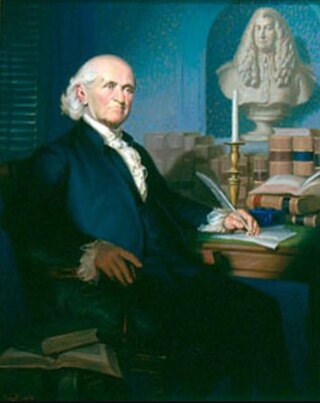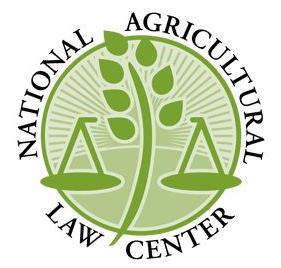
The Corpus JurisCivilis is the modern name for a collection of fundamental works in jurisprudence, enacted from 529 to 534 by order of Byzantine Emperor Justinian I. It is also sometimes referred to metonymically after one of its parts, the Code of Justinian.
The West American Digest System is a system of identifying points of law from reported cases and organizing them by topic and key number. The system was developed by West Publishing to organize the entire body of American law. This extensive taxonomy makes the process of doing case law legal research less time consuming as it directs the researcher to cases that are similar to the legal issue under consideration.

The Digest, also known as the Pandects, was a compendium or digest of juristic writings on Roman law compiled by order of the Byzantine emperor Justinian I in 530–533 AD. It is divided into 50 books.

The Congressional Record is the official record of the proceedings and debates of the United States Congress, published by the United States Government Publishing Office and issued when Congress is in session. The Congressional Record Index is updated daily online and published monthly. At the end of a session of Congress, the daily editions are compiled in bound volumes constituting the permanent edition. Chapter 9 of Title 44 of the United States Code authorizes publication of the Congressional Record.
In American law, the American Law Reports are a resource used by American lawyers to find a variety of sources relating to specific legal rules, doctrines, or principles. It has been published since 1919, originally by Lawyers Cooperative Publishing, and currently by West and remains an important tool for legal research.
In American jurisprudence, the Restatements of the Law are a set of treatises on legal subjects that seek to inform judges and lawyers about general principles of common law. There are now four series of Restatements, all published by the American Law Institute, an organization of judges, legal academics, and practitioners founded in 1923.

HeinOnline (HOL) is a commercial internet database service launched in 2000 by William S. Hein & Co., a Buffalo, New York publisher specializing in legal materials. The company was founded in Buffalo, New York, in 1961, and is currently based in nearby Getzville, New York. In 2013, WSH Co. was the 33rd largest private company in western New York, with revenues of around $33 million and more than seventy employees.
In legal research, a primary authority is a term referring to statements of law that are binding upon the courts, government, and individuals. Primary authority is usually in the form of a document that establishes the law, and if no document exists, is a legal opinion of a court. The search for applicable primary authority is the most important part of the process of legal research.
Legal research is "the process of identifying and retrieving information necessary to support legal decision-making. In its broadest sense, legal research includes each step of a course of action that begins with an analysis of the facts of a problem and concludes with the application and communication of the results of the investigation."

The United States Statutes at Large, commonly referred to as the Statutes at Large and abbreviated Stat., are an official record of Acts of Congress and concurrent resolutions passed by the United States Congress.

A law library is a special library used by law students, lawyers, judges and their law clerks, historians, and other scholars of legal history in order to research the law. Law libraries are also used by people who draft or advocate for new laws, e.g. legislators and others who work in state government, local government, and legislative counsel offices or the U.S. Office of Law Revision Counsel and lobbying professionals. Self-represented, or pro se, litigants also use law libraries.

Zephaniah Swift was an eighteenth-century American writer, judge, lawyer, chief justice, congressman, law professor, diplomat and politician from Windham, Connecticut. He served as a U.S. Representative from Connecticut and State Supreme Court Judge. He wrote the first legal treatise published in America.

West is a business owned by Thomson Reuters that publishes legal, business, and regulatory information in print, and on electronic services such as Westlaw. Since the late 19th century, West has been one of the most prominent publishers of legal materials in the United States. Its headquarters is in Eagan, Minnesota; it also had an office in Rochester, New York, until it closed in 2019, and in Cleveland, Ohio, until it closed in 2010. Organizationally, West is part of the global legal division of Thomson Reuters.
legislation.gov.uk, formerly known as the UK Statute Law Database, is the official Web-accessible database of the statute law of the United Kingdom, hosted by The National Archives. Established in the early 2000s, it contains all primary legislation in force since 1267 and all secondary legislation since 1823; it does not include legislation which was fully repealed prior to 1991. The contents have been revised to reflect legislative changes up to 2002, with material that has been amended since 2002 fully updated and searchable.

A legal treatise is a scholarly legal publication containing all the law relating to a particular area, such as criminal law or trusts and estates. There is no fixed usage on what books qualify as a "legal treatise", with the term being used broadly to define books written for practicing attorneys and judges, textbooks for law students, and explanatory texts for laypersons. The treatise may generally be loose leaf bound with rings or posts so that updates to laws covered by the treatise and annotated by the editor may be added by the subscriber to the legal treatise.
Legal research is the process of identifying and retrieving information to support legal arguments and decisions. Finding relevant legal information can be challenging and may involve the use of electronic research tools as well as printed books and materials. However, many resources that are useful for legal research are fee-based, and many are not easily accessible.
Computer-assisted legal research (CALR) or computer-based legal research is a mode of legal research that uses databases of court opinions, statutes, court documents, and secondary material. Electronic databases make large bodies of case law easily available. Databases also have additional benefits, such as Boolean searches, evaluating case authority, organizing cases by topic, and providing links to cited material. Databases are available through paid subscription or for free.

The National Agricultural Law Center (NALC) at the University of Arkansas is a federally funded, nonpartisan research and information center that serves as the nation's leading source of agricultural and food law research and information. The center, created by Congress in 1987, is the only institution of its kind in the United States and serves the nation's vast agricultural community, including attorneys, farmers, federal and state policymakers, extension personnel, academics, students, consumers, and others.
Edict of government is a technical term associated with the United States Copyright Office's guidelines and practices that comprehensively includes laws, which advises that such submissions will neither be accepted nor processed for copyright registration. It is based on the principle of public policy that citizens must have unrestrained access to the laws that govern them. Similar provisions occur in most, but not all, systems of copyright law; the main exceptions are in those copyright laws which have developed from English law, under which the copyright in laws rests with the Crown or the government.
Georgia v. Public.Resource.Org, Inc., No. 18-1150, 590 U.S. ___ (2020), is a United States Supreme Court case regarding "whether the government edicts doctrine extends to—and thus renders uncopyrightable—works that lack the force of law, such as the annotations in the Official Code of Georgia Annotated" (OCGA). On April 27, 2020, the Court ruled 5–4 that the OCGA cannot be copyrighted because the OCGA's annotations were "authored by an arm of the legislature in the course of its legislative duties"; thus the Court found that the annotations fall under the government edicts doctrine and are ineligible for copyright.









